- AdventHealth
Skin Cancer Awareness Month serves as a crucial reminder of the importance of vigilance in detecting and preventing skin cancer, the most common cancer affecting both men and women in the United States.
Matthew Spraker, MD, a radiation oncologist with AdventHealth, shares valuable insights about skin cancer, its treatment options, and preventive measures.
To limit your risk of skin cancer, Dr. Spraker suggests the use of broad-spectrum sunscreen with SPF 30 or higher, along with sun-blocking clothing such as wide-brimmed hats and sunglasses.
Avoiding UV exposure during peak hours (10 am - 4 pm) and steering clear of tanning beds, particularly for younger individuals, can significantly decrease the likelihood of developing skin cancer.
He stresses the importance of regular skin checks to identify concerning changes, such as new growths, evolving moles, or sores that don’t heal. Using the acronym “ABCDE” to assess moles—Asymmetry, Border irregularity, Color variation, Diameter greater than 5 mm, and Evolving appearance—can be helpful in spotting potential melanomas early.
Dr. Spraker points out that Colorado has higher-than-average rates of skin cancer due to its unique geographical and lifestyle factors.
UV light is stronger at higher altitudes, such as Denver, where it is estimated to be 20–30% more intense than at sea level. Combined with Colorado’s 300 sunny days per year and residents’ love for outdoor activities, these elements contribute to increased UV exposure, even during snowy winters when UV rays can reflect off the snow.
If you are diagnosed with skin cancer, it is often highly treatable, especially when caught early. According to Dr. Spraker, “If patients are vigilant, they have a high chance of cure.”
Radiation therapy is one method used for treating skin cancer, and it has been shown to be effective. While surgery is well-known and widely used, radiation therapy can serve as an alternative to surgery or complement it in higher-risk cases.
“Radiation can help all patients with skin cancer in different ways,” said Dr. Spraker. “Many patients with higher-risk cases may benefit from radiation after surgery to reduce the risk of recurrence. For others, radiation therapy can be a standalone treatment and is highly effective at curing skin cancer.”
For patients hesitant about surgery or those seeking alternatives, radiation therapy offers a less invasive option without incisions or anesthesia.
“My clinical experience is in line with studies that show radiation therapy is very successful in treating skin cancer on its own or in combination with surgery and/or systemic therapy,” said Dr. Spraker. “While studies never compared radiation therapy to surgery directly, radiotherapy offers cure rates similar to surgery.”
Skin Cancer Awareness Month is a time to educate, reflect, and take proactive steps. Dr. Spraker encourages patients to explore all available options for treating skin cancer, consulting both dermatologists and radiation oncologists to tailor the best approach for their needs. Through prevention, vigilance, and informed choices, the fight against skin cancer can be met with optimism and success.
____________________________________________________________________________________

Matthew Spraker, MD, believes it is his privilege to help heal people with cancer. Dr. Spraker enjoys the science of oncology and is building upon his knowledge by completing an integrative medicine fellowship. He treats patients with cancer, osteoarthritis, and plantar fasciitis. Dr. Spraker performs stereotactic body radiation therapy (SBRT), radiosurgery, and brachytherapy.
Dr. Spraker earned his medical degree from the University of Illinois at Chicago College of Medicine. He completed his residency at the University of Washington School of Medicine.
Click here to schedule an appointment with Dr. Spraker.
Recent News
AdventHealth purchases 17 acres in DeLand
AdventHealth purchases 17 acres in DeLand
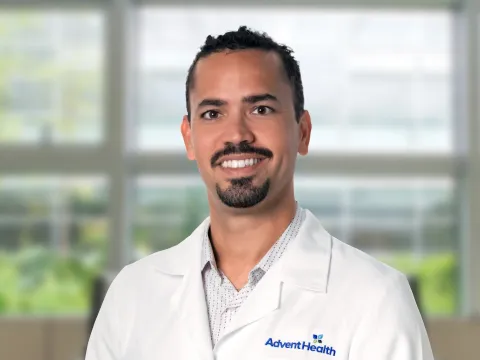
Albit Paoli, MD joins AdventHealth Medical Group Orthopedics & Sports Medicine
AdventHealth is pleased to announce that Albit Paoli, MD, has joined AdventHealth Medical Group Orthopedics & Sports Medicine at Calhoun and AdventHealth Medical Group Orthopedics & Sports Medicine at...
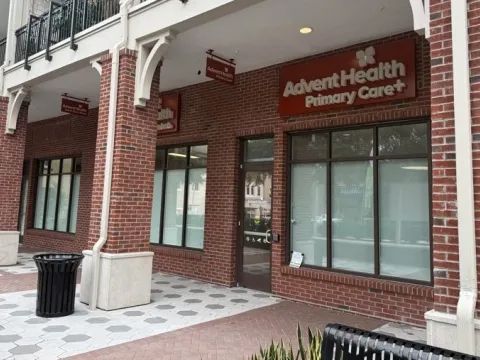
AdventHealth expands access to primary care in the heart of DeLand
AdventHealth has opened a new Primary Care+ location in the heart of downtown DeLand, giving residents a simple way to get everyday care close to where life happens. The primary care practice offers...

Fueling healthy futures for Flagler’s student athletes
Early practices, full class schedules, and evening games can push student athletes to their limits, and proper nutrition is essential to keeping them strong and focused. AdventHealth has introduced...
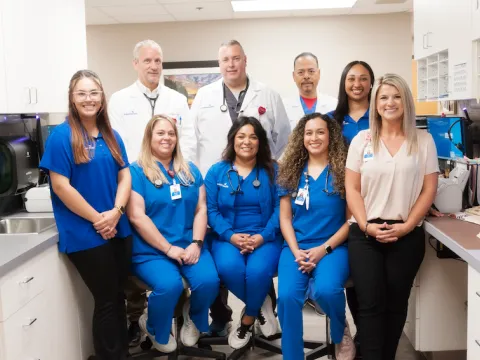
AHMG Cardiology at Dalton earns nuclear cardiology accreditation
AdventHealth Medical Group Cardiology at Dalton has earned a three-year accreditation in Nuclear Cardiology from the Intersocietal Accreditation Commission (IAC).
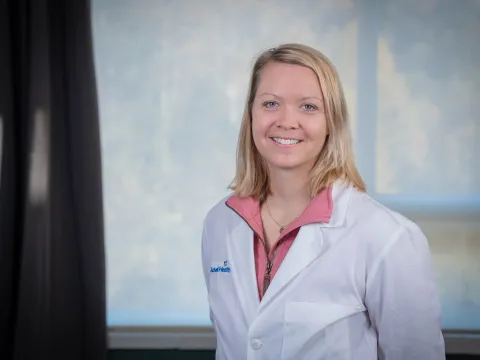
New orthopedic provider expands access to compassionate care for families in WNC
AdventHealth is welcoming Beth Mitchell, PA-C, an experienced orthopedic provider bringing warm, whole-person care to patients across Haywood County and the surrounding Western North Carolina region.

When seconds count: How a community of heroes saved one little girl
It was a day like any other — until the phone rang. For Ellison’s mom, that call froze time: “You need to get here right away.”

AdventHealth expands neurology services in West Volusia
Board-certified neurologist Dr. Zarmina Mufti has joined AdventHealth Medical Group and is now caring for patients at AdventHealth, expanding access to expert, whole-person neurological care for...

Avon Park man receives innovative, non-invasive prostate treatment now available in Highlands County
When Marc Marasigan went to the Emergency Department at AdventHealth Sebring, he thought he was dealing with a stubborn fever and some back pain. Instead, that visit uncovered a kidney stone and a...
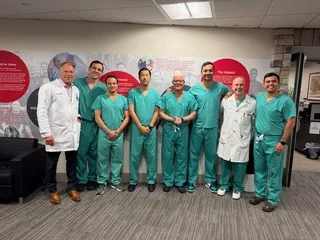
Pursuing excellence in knee surgery: Colorado Joint Replacement hosts Insall Traveling Fellowship
The international program that brings leading knee surgeons together to learn, collaborate and elevate the future of joint care.
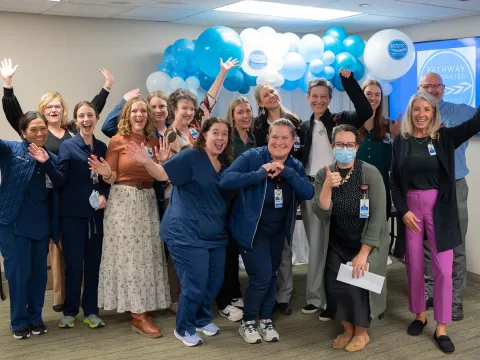
Strengthening patient care in WNC: AdventHealth Hendersonville earns new nursing recognition
AdventHealth Hendersonville has been designated as a Pathway to Excellence® organization by the American Nurses Credentialing Center (ANCC), a recognition that highlights the hospital’s commitment to...

An ocean between them, and a calling that reunited them
After seven years apart, sisters Maricar Olsen and Ermeliza Ortiz were reunited in a place they both now call home. Their journey from the Philippines to Central Florida is a story of faith, family...

